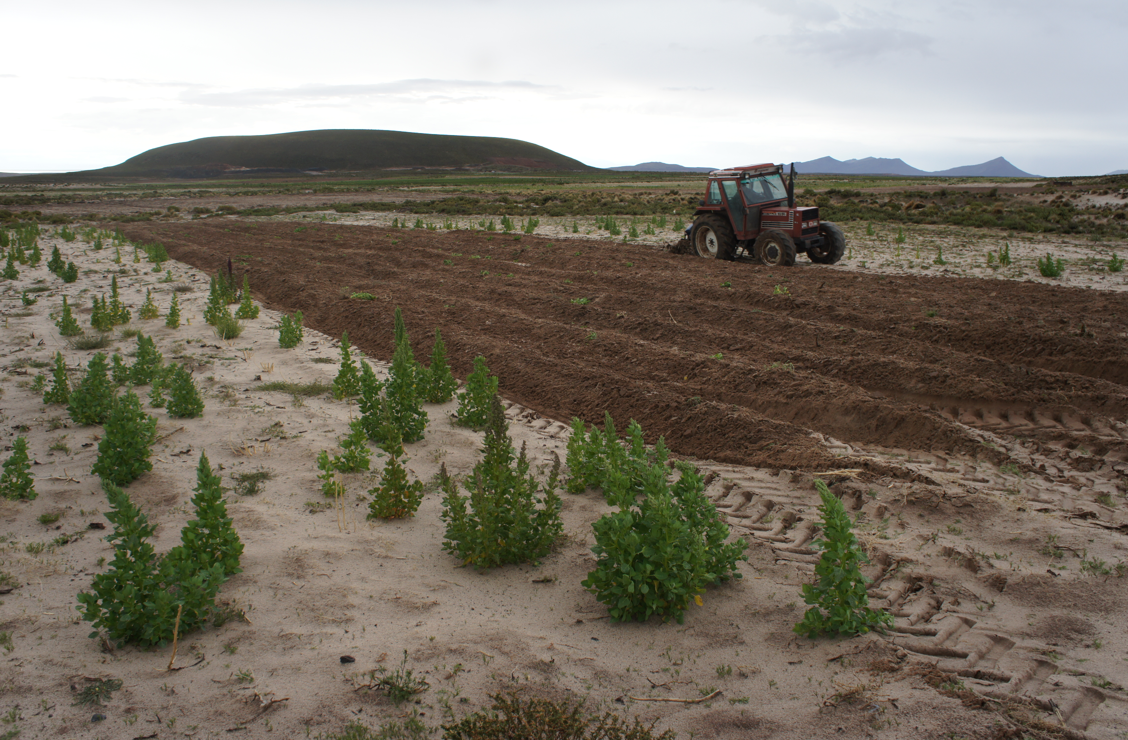Up to 40% of the world’s land is degraded, says a major UN assessment of how countries manage and use land resources – soil, water and biodiversity.
The report says that restoring land, soils and forests could contribute more than one-third of what’s needed to limit global warming to 1.5°C. The report also lays out hundreds of land and ecosystem restoration examples from around the world, including one from New Zealand.
The SMC asked experts to comment on the report.
Professor Alan Renwick, Professor of Agricultural Economics and Associate Dean Research, Lincoln University, comments:
“This report highlights the huge importance of land to global wealth and wellbeing but also the enormous threat it is under from human activity. Nowhere is this more relevant than in New Zealand. We have what appears to be a financially successful food and fibre sector with exports predicted to hit $50bn this year, but we are putting inordinate strain on our natural resources and like the world as a whole we are fast coming up against our environmental boundaries.
“For example, the 2018 land report in NZ highlighted that we are losing 192 million tonnes of soil every year from erosion – 44 percent of this is from pasture. We are rapidly losing biodiversity (nearly 83 percent of our native birds, bats, reptiles, and frogs are classified as threatened or at risk of extinction) and of course the agricultural sector accounts for a major part of our greenhouse gas emissions (just under 50 per cent). Though it is not just land-use change in agriculture that is putting pressure on land, but also our expanding urban areas and other competing uses.
“It is in everyone’s interest that we protect and enhance our land. A key message in the report is particularly relevant for New Zealand. We often hear of the conflict between government and rural businesses (e.g. the Groundswell movement, etc.) about land-use but the report highlights clearly that the path to addressing these problems is through Government, business and communities working together. We have many examples in NZ of how this can work – for example, the Government supporting on-the-ground initiatives such as catchment groups.
“Regulation is an important part of the process but it is not enough, we need to support the transition to more sustainable practices and land-uses to alleviate some of the pressures on our land and ensure that the wealth and wellbeing that is generated from it can be maintained and enhanced. This is particularly important as our reliance on imported fertilisers – to maintain our current levels of productivity – is increasingly becoming a source of risk for our agricultural sector.
“It is interesting that the very first line in the report’s foreword talks about “profligate consumerism”. This highlights the fact that much of the pressure on our land emerges from our choices as consumers, and that we all hold a responsibility for the degradation of our land, not just land managers. If we just consider that a third of all food produced is lost or wasted, then clearly our behaviours have a major effect on our resource demands.”
No conflict of interest.
Dr Nick Cradock-Henry, Senior Scientist, Manaaki Whenua – Landcare Research, comments:
“The release of the second Global Land Outlook report comes soon after the publication of the Sixth Assessment of the Intergovernmental Panel on Climate Change, and the government’s Draft National Adaptation Plan – all stark reminders of the ways in which human activity has dramatically altered life-supporting systems, with implications for future sustainability, including food production.
“The global outlook remains poor: land degradation affects up to 40% of land, with significant declines in soil fertility, water quality and quantity, forest cover and native biodiversity.
“Nationally in Aotearoa New Zealand, increasing urbanisation and the loss of highly productive land, the precarity of freshwater resources in many of our increasingly drought-prone regions, and the rising frequency of extreme flood events, highlight the need for ecological integrity and greater resilience in natural systems. Functioning ecosystems play a critical role in human wellbeing, including minimising soil erosion and flood control – and provide the basis for the primary economic activities central to Aotearoa NZ’s economic growth.
“The report clearly articulates the synergies and trade-offs between global food production and land degradation, and the immediate challenges this presents for the world’s growing population.
“For Aotearoa NZ, there is an opportunity to play a critical role in developing, applying, and demonstrating greater efficiencies in primary production systems, co-designing long-term pathways to sustainability with communities, food sector bodies, and other stakeholders – and to ensure greater equality and access for food security, without compromising the environment. This will require linked-up and systems-based thinking to better understand the relationships between land degradation, economic growth, and food production; and to look beyond the normal business or electoral cycle – what the Bank of England’s Mark Carney calls “the tragedy of the Horizon” – to embrace long-term thinking for a more resilient future.”
No conflict of interest.
